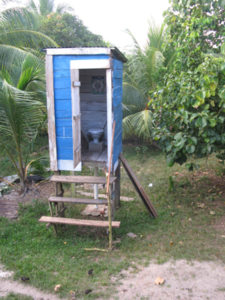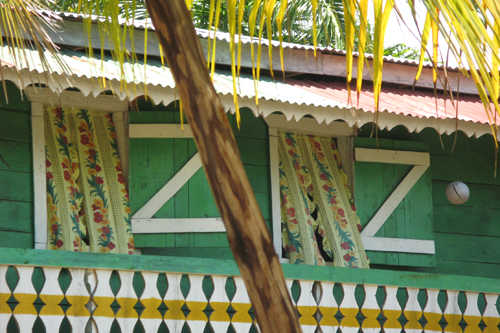
Have you been to a place with no electricity—or refrigeration or candles or kerosene lanterns?
No running water or postal service?
A place where a transistor radio is the one reliable link to the rest of the world?
A place where the bus comes past twice a day and a trip to the capital takes 24 hours?
I recently spent a week in remote areas of Nicaragua, in the poorest part of the second-poorest nation in the Western Hemisphere after Haiti, a country with an average annual income of $1,080. In the town where we (a photographer, a blogger, and me, a journalist) were based reside 45,000 people—only 20 percent of whom have access to running water.
They welcomed us as family and prepared the food we’d brought with us, a young boy holding up a flashlight as they cooked in the dark on their small clay woodstove, waist-high at the back of the large kitchen.
We also spent one night in a village of 10 families after making a two-hour journey on a washboard road of red dust and a crossing by river barge.
The families live on land granted to them as members of the Miskitu people, in wooden houses high atop stilts, their animals snoozing beneath and around them in the shade.
They welcomed us as family and prepared the food we’d brought with us, a young boy holding up a flashlight as they cooked in the dark on their small clay woodstove, waist-high at the back of the large kitchen.

Their toilet sits in a wooden hut outside their home, reached by climbing a steep set of three stairs. I narrowly missed stepping on a small black piglet scurrying by in the darkness, and a sea of eyes glowed back at me as my headlamp bounced off the retinas of a flock of goats.
A city girl, living in the manicured suburbs of New York City for decades, I’d never bathed using a bucket of water I had cranked hard from a well, let alone with a large cow keeping me company as the sun set.
I’d never seen homes made only of wood and rusted corrugated pieces of tin. One of them had a deep well with no covering and tiny children wandering near it, a fall down it to their deaths quite possible. Yet people dressed with care and pride, even rural women wearing makeup and sparkly hair clips.
I’ve traveled widely, and to some rough places, but this poverty completely redefined wealth for me: A building simply made of concrete or one with glazed windows signaled luxury. So did a drink of cold, fresh water or a shower or an indoor toilet.
Everyone welcomed us in a way I found deeply moving and far from the North American norm of hurried and impersonal or falsely, loudly friendly but with little genuine interest in emotional connection.
Everyone welcomed us in a way I found deeply moving and far from the North American norm of hurried and impersonal or falsely, loudly friendly but with little genuine interest in emotional connection.
One morning, we watched our host, Linda, a 41-year-old mother of six, and her 69-year-old mother-in-law, Ailita, and her grand-daughter Exelia, a shy seven-year-old with tight braids, a white dress, and a huge smile weed their fields using a two-foot-long machete.
We traveled with them by dugout canoe, our seats freshly whacked from a bamboo pole. After striding through the fields, Ailita gestured at me to wipe down my arms and legs in case I’d rubbed against something noxious. We shared nothing more than gender and spoke no shared language, yet I understood. Exelia kept offering my colleague Jennifer tiny orchids.
Kindness needed no translation.
For all our material wealth we often live in much deeper and widespread poverty, the poverty of imagination—the imagination to appreciate a different world, a different set of values, and a web of connections awaiting our discovery, possibly in the least likely place of all.
It was deeply disorienting to return to the U.S., changing planes in Atlanta, immediately once more surrounded by casual consumption and nonchalant materialism. My lunch there cost $16, a week’s wages for many Nicaraguans.
The journey quickly realigned my ideas of what is necessary. Linda’s wood-floored home is silent and clean, surrounded by coconut palms and canopied by a star-studded inky sky. Yet she walks two hours each way to her farm and faces entire months with so little food to eat she never even lights her woodfire.
For all our material wealth we often live in much deeper and widespread poverty, the poverty of imagination—the imagination to appreciate a different world, a different set of values, and a web of connections awaiting our discovery, possibly in the least likely place of all.
Post Disclaimer
This content is for informational purposes only and does not constitute medical advice. Please consult a healthcare professional for any medical concerns.




2 Comments
another jennifer
A wonderful description of our journey, Caitlin. We will remember it forever. I hope we can plan a trip back in the future.